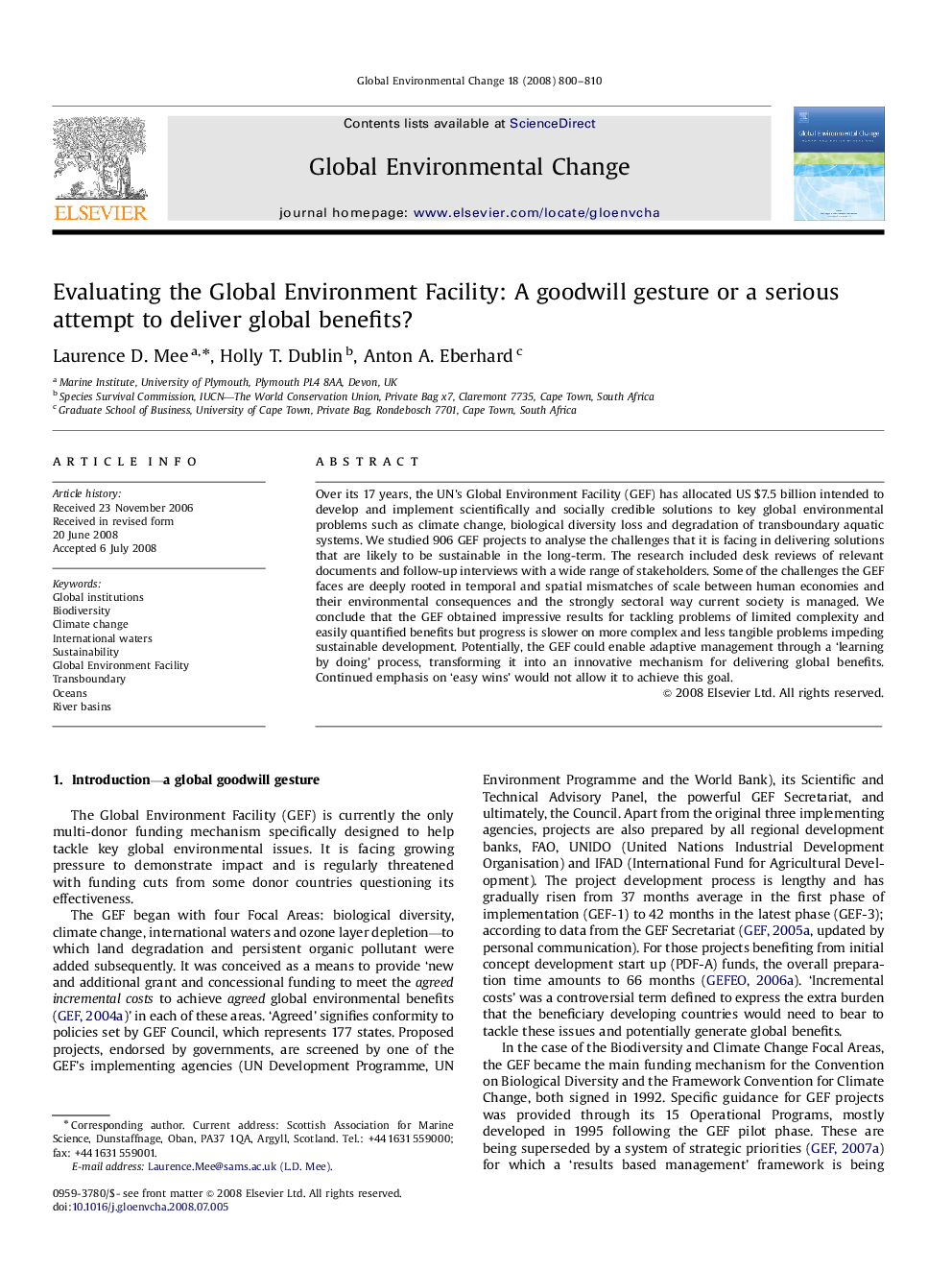| Article ID | Journal | Published Year | Pages | File Type |
|---|---|---|---|---|
| 1054809 | Global Environmental Change | 2008 | 11 Pages |
Over its 17 years, the UN's Global Environment Facility (GEF) has allocated US $7.5 billion intended to develop and implement scientifically and socially credible solutions to key global environmental problems such as climate change, biological diversity loss and degradation of transboundary aquatic systems. We studied 906 GEF projects to analyse the challenges that it is facing in delivering solutions that are likely to be sustainable in the long-term. The research included desk reviews of relevant documents and follow-up interviews with a wide range of stakeholders. Some of the challenges the GEF faces are deeply rooted in temporal and spatial mismatches of scale between human economies and their environmental consequences and the strongly sectoral way current society is managed. We conclude that the GEF obtained impressive results for tackling problems of limited complexity and easily quantified benefits but progress is slower on more complex and less tangible problems impeding sustainable development. Potentially, the GEF could enable adaptive management through a ‘learning by doing’ process, transforming it into an innovative mechanism for delivering global benefits. Continued emphasis on ‘easy wins’ would not allow it to achieve this goal.
